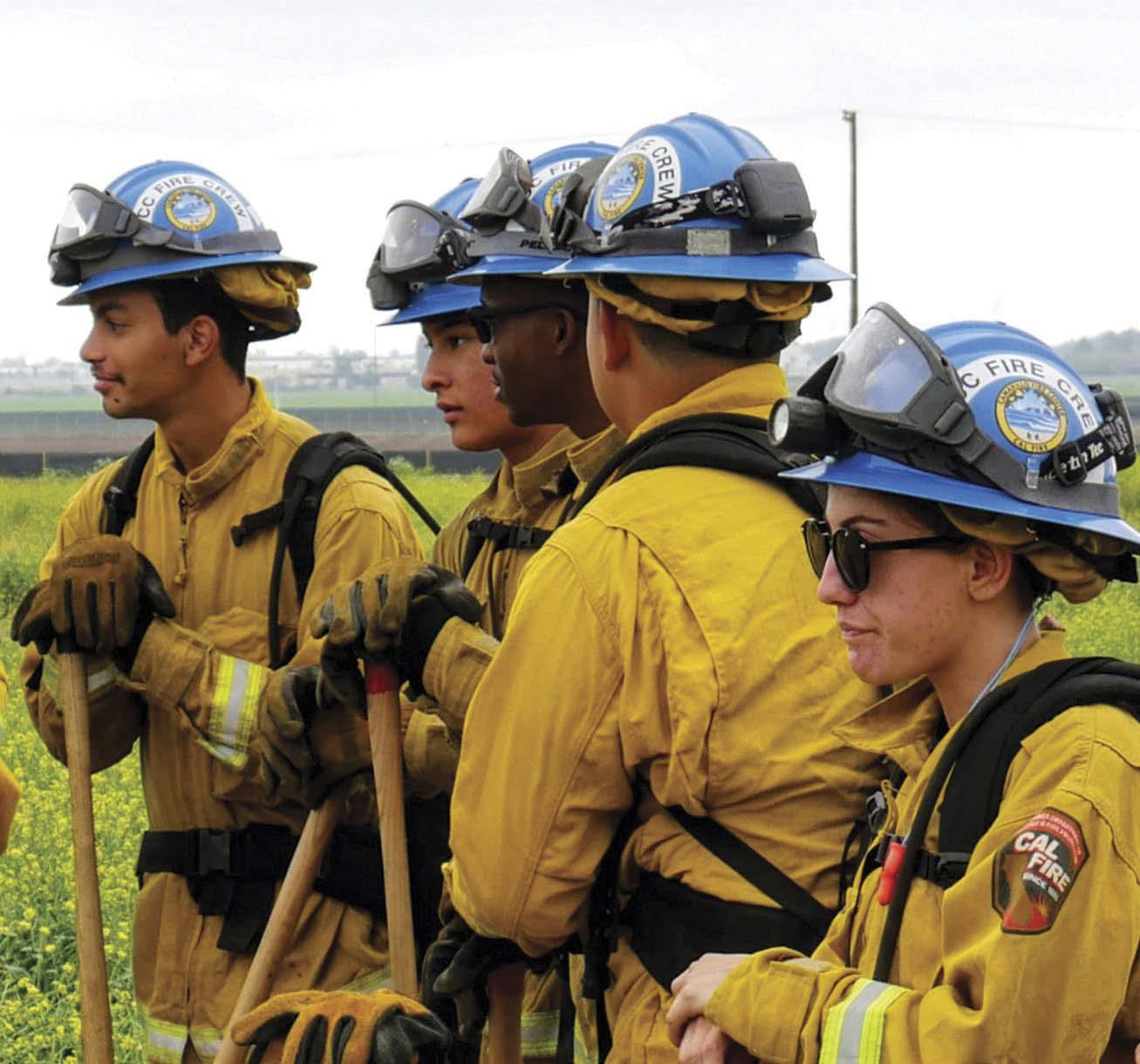
3 minute read
NOT JUST A JOB, BUT THE START OF MUCH MORE
Programs build wildland firefighting, forestry, energy and culinary skills
BY DEBBIE ARRINGTON
In the wake of the COVID pandemic, the California Conservation Corps has added appeal: Jobs plus preparation for future careers.
“Now more than ever, there’s a greater need,” says CCC Executive Director Bruce Saito, “not just for public service and conservation work, but also to enable young people who have been laid off or can’t find work to embrace the Corps’ mission – provide opportunities for young people while doing work around the state.
“Do you want to flip burgers when the restaurant economy is down?” Saito adds. “Maybe it’s time to rethink your future and make the switch. Do good things and help build a career in something you like. You can have a career, not just a job.”
Reflecting the state’s needs as well as the CCC’s values, the CCC offers several career-track programs, explains Amy Cameron, CCC’s chief deputy director.
Cameron has a longtime personal connection with the CCC. Her father, LeRoy Chatfield, served as its second appointed director during the late 1970s.
“My favorite thing about the Corps is having all these young people come together for a different way of life,” Cameron says. “Every background, every religion, working and living together in the Corps; it’s beautiful to see. The inclusiveness of the Corps and Corpsmembers feels so positive. It’s an example of what’s possible. It brings out the best in everybody.” Trail building in California’s state parks, beaches and wilderness areas ranks among the most visible CCC programs.
As a hiker, Cameron is in awe of the CCC’s generations of trail builders. “I did not realize how much work goes into building a trail,” she says. “Now, I realize a Corpsmember placed every rock there.”
Trail building also impacts Corpsmembers, Cameron adds. “I’ve had several say to me, ‘I never saw the ocean until I joined the Corps.’ Not only are they seeing the ocean, but they found that pride (in themselves) that they were able to add their own footprint.”
Working and learning outdoors are part of the CCC’s draw. Among its most popular programs are wildland firefighting and forestry.
“As part of our fire program, we staff 12 crews with 15 to 17 Corpsmembers per crew, working directly with CAL FIRE to fight fires,” Cameron says. “It’s such important work for California and also for Corpsmembers building their careers.”
CCC also gives young people, especially women, the opportunity to try something they may not have otherwise experienced such as how to safely operate chainsaws or heavy equipment.
Amy Cameron
Chief Deputy Director, California Conservation Corps
Forestry goes beyond firefighting into overall forest management. Three crews tackle reforestation, landscaping, removal of invasive plants and other aspects of forest management to create healthier forests.
While helping our state fight climate change, the CCC’s energy program teaches electrical skills as it retrofits buildings with energy-efficient lighting and other updates. Graduates of this program leave the CCC with certification and sought-after technical know-how.
Also in high demand are graduates of the CCC’s culinary program. Graduates of this program learn by doing – feeding fellow Corpsmembers.
“All of our residential centers have a culinary program, cooking for staff and Corpsmembers,” Cameron says. “They get instant feedback; 75 other people are eating that meal they prepared. They learn all aspects of running a big institutional kitchen, from inventory to how to plan and prepare nutritious meals. They learn how to follow directions while being part of a team. People may think they’re interested in a career in food; after this program, they know their passion is real.”


PHOTOS COURTESY OF CCC







